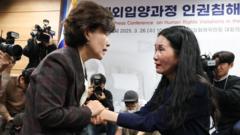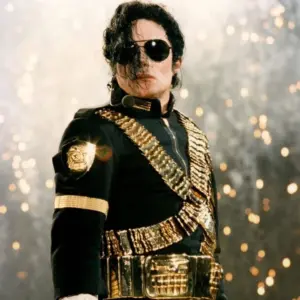An investigation has unveiled serious human rights violations related to the adoption of over 170,000 Korean children since the 1950s, highlighting fraudulent practices and lack of government regulation.
South Korea's Adoption Scandal: Thousands of Children Sent Abroad Amid Human Rights Violations

South Korea's Adoption Scandal: Thousands of Children Sent Abroad Amid Human Rights Violations
A groundbreaking report reveals systemic issues in South Korea's adoption processes, leading to the mass exporting of children for profit and inadequate oversight.
The Truth and Reconciliation Commission of South Korea has released a troubling report detailing extensive human rights violations in the nation’s historic adoption program, which saw the overseas adoption of at least 170,000 children. The inquiry, initiated in 2022, has uncovered a pattern of abuse where private agencies exploited children for profit amid inadequate government oversight.
Chairperson Park Sun-young described the findings as a "shameful part of our history" during a press briefing, underscoring the emotional toll on many adoptees. While some were fortunate enough to find loving families, numerous others endured significant hardships and trauma due to flawed adoption processes. "This is a systemic failure in oversight," she stated, conveying the distress many still face today.
Since the inquiry began, 367 adoptees have filed petitions alleging fraudulent practices dating from 1964 to 1999, with 56 recognized victims identified thus far. The once informal adoption practices allowed private agencies significant control, leading to numerous issues such as unregulated fees, coerced consent from birth mothers, and fabricated identities, all contributing to the creation of a profit-driven adoption industry.
The situation escalated post-Korean War when South Korea's poverty led the government to enable a transnational adoption program run by private agencies, which lacked proper supervision. This rampant exploitation was largely influenced by foreign agencies that requested a consistent supply of children, prompting Korean agencies to comply without due diligence.
Many adoptees, such as Inger-Tone Ueland Shin, now 60, have shared harrowing stories of their experiences. Adopted at age 13 by a Norwegian couple under dubious circumstances, she later discovered her adoption was illegal. Inger-Tone struggled with traumatic experiences and expressed that her adoptive parents paid more attention to their pets than to her well-being. After a long legal battle, she was finally acknowledged as a victim of systemic neglect.
In response to the commission's findings, the government has vowed to reform its adoption processes. In 2023, a law was passed to transition control of overseas adoptions from private agencies to a government ministry, with implementation set for July.
The commission's report has made recommendations, including an official government apology and adherence to international standards in transnational adoptions. As South Korea grapples with its past, many are hopeful for a future where ethical treatment of all children is prioritized. The government has yet to formally respond to these findings, leaving many adoptees and their advocates awaiting crucial changes.



















